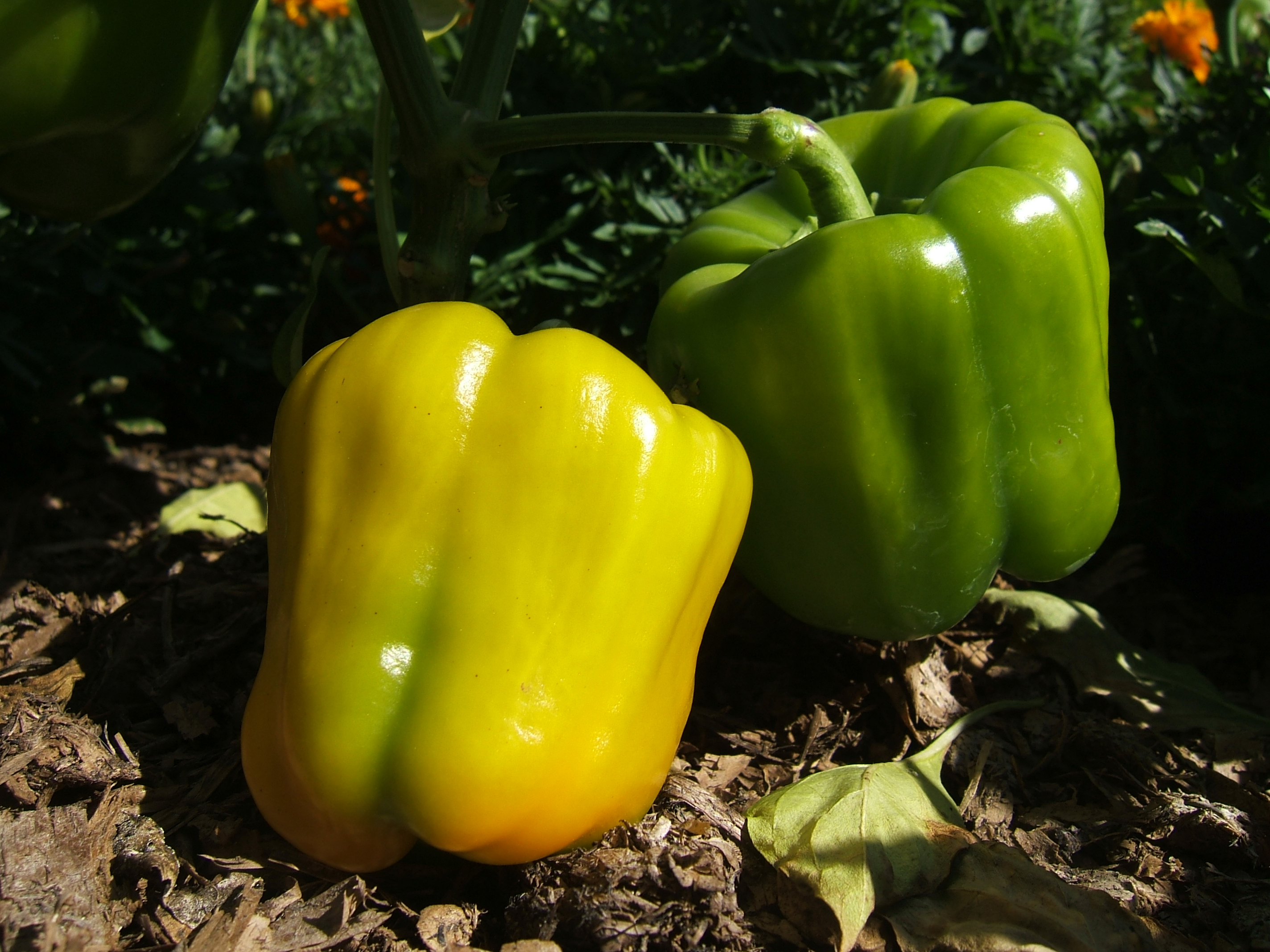Organic Vs. Synthetic Fertilizers: Which Is Best for Nurturing Healthy Pepper Plants?
In the world of nurturing healthy pepper plants, the choice in between synthetic and organic plant foods stands as an essential decision with far-ranging ramifications. While both options aim to give necessary nutrients to support plant growth, the subtleties of their influence on the soil, plant health, and the setting stimulate a debate that mirrors throughout the gardening community. Recognizing the unique advantages and prospective risks of each plant food type is crucial for pepper farmers seeking to maximize their yields while keeping an eco-conscious and lasting strategy.
Benefits of Organic Plant Foods
Organic plant foods offer an environmentally-friendly and lasting method to beneficial pepper plants, offering crucial nutrients without making use of synthetic chemicals. These natural fertilizers are stemmed from natural sources such as garden compost, manure, bone meal, and seaweed, advertising soil wellness and biodiversity. Unlike synthetic plant foods, natural options launch nutrients slowly, ensuring a well balanced and constant supply for pepper plants to flourish.
One substantial benefit of organic plant foods is their capacity to improve dirt structure and water retention. By improving dirt health, organic plant foods advertise advantageous microbial task, which assists in nutrient uptake by pepper plants. Additionally, organic plant foods decrease the danger of chemical run-off, protecting water sources from contamination and guarding the environment.
Additionally, organic plant foods add to lasting soil fertility by advertising the development of beneficial soil organisms. These organisms assist damage down raw material, launching nutrients in a kind that is quickly obtainable to pepper plants. best fertilizers for peppers. By cultivating a healthy and balanced dirt ecosystem, organic fertilizers support sustainable pepper cultivation practices that benefit both plants and the environment
Drawbacks of Synthetic Fertilizers
Synthetic fertilizers, in comparison to their organic equivalents, present different drawbacks when made use of to nurture pepper plants, impacting both plant health and ecological sustainability. One major downside of artificial fertilizers is their tendency to seep nutrients from the soil quickly.
In addition, the overuse of synthetic plant foods can add to water pollution. Excess plant foods not taken in by plants can get rid of right into water bodies, causing eutrophication, where algae flowers diminish oxygen levels in the water, damaging water life. Furthermore, artificial fertilizers are commonly originated from non-renewable sources, such as nonrenewable fuel sources, contributing to carbon exhausts and environmental degradation throughout their production.
Nutrient Absorption Contrast
Efficient nutrient absorption plays a vital duty in the general wellness and growth of pepper plants. When comparing natural and synthetic plant foods in terms of nutrient absorption, organic fertilizers have the benefit of supplying an extra well balanced and slow-release source of nutrients (best fertilizers for peppers). Organic plant foods contain a selection of macro and micronutrients that are not just valuable for the plants but likewise advertise healthy dirt microbial why not try this out task, which assists in nutrient uptake. On the various other hand, synthetic fertilizers frequently supply a quick launch of nutrients, which can bring about leaching and overflow, leading to reduced nutrient absorption prices by the plants.
Furthermore, organic plant foods boost dirt framework and water retention ability, permitting pepper plants to accessibility nutrients more efficiently. This improved dirt top quality promotes origin growth, making it possible for far better nutrient absorption. Artificial fertilizers, although originally enhancing plant development because of their high nutrient concentrations, may hinder long-term nutrient absorption by derogatory dirt health and wellness in time.
Ecological Influence Considerations

On the various other hand, artificial fertilizers, although often even more concentrated and immediately offered to plants, can have detrimental impacts on the environment otherwise used effectively (best fertilizers for peppers). Their production calls for high energy inputs, bring about greenhouse gas discharges and adding to climate adjustment. Furthermore, the drainage of excess synthetic plant foods can contaminate water resources, leading to eutrophication and hurting aquatic environments.
Best Fertilizer Practices for Peppers
When feeding pepper plants, enhancing nutrient uptake and lessening environmental impact are essential factors to consider. To attain this, it is crucial to adhere to finest plant food practices customized to the details needs of pepper plants. One critical technique is to do a dirt examination before applying any kind of fertilizers. This test can figure out the pH level of the dirt and determine any kind of nutrient shortages, leading you in picking the most sites ideal fertilizer formula.
One more important method is to feed pepper plants at the correct time. Usually, peppers gain from receiving plant food at growing and after that again when they start to blossom. Over-fertilizing can bring about vitamins and mineral imbalances and hurt the plants, so it is vital to comply with view it now advised application prices.
Furthermore, choosing a well balanced plant food with an NPK proportion that suits pepper plants' requirements is fundamental. Organic fertilizers, such as compost or manure, can be exceptional choices as they release nutrients slowly and boost soil framework in time. However, synthetic fertilizers can supply a quick nutrient boost when required. Eventually, combining artificial and organic fertilizers carefully can aid nurture healthy pepper plants while minimizing environmental influence.
Verdict

Organic fertilizers provide an environmentally-friendly and sustainable technique to beneficial pepper plants, offering vital nutrients without the use of artificial chemicals. Unlike artificial plant foods, organic choices launch nutrients gradually, ensuring a balanced and constant supply for pepper plants to grow.
Artificial fertilizers, in contrast to their natural equivalents, position various drawbacks when utilized to nurture pepper plants, affecting both plant wellness and environmental sustainability. When contrasting artificial and organic plant foods in terms of nutrient absorption, organic plant foods have the advantage of giving an extra balanced and slow-release source of nutrients.Moreover, organic fertilizers improve soil structure and water retention capacity, enabling pepper plants to access nutrients a lot more effectively.
Comments on “Best Fertilizers for Peppers: Accomplish Superior Results in Your Yard”